Introduction
When it comes to breaking free from addiction, the journey can seem daunting and the timeline unclear. Contrary to popular belief, which simplistically suggests it takes just 21 days to form or break a habit, addiction recovery is a complex, multi-faceted process that involves both physical and psychological transformation. Here, we delve into the intricacies of overcoming addiction, exploring how long it truly takes, the stages involved, and the factors that influence each individual’s path to recovery.
Debunking the 21-Day Myth and Understanding Recovery Timelines
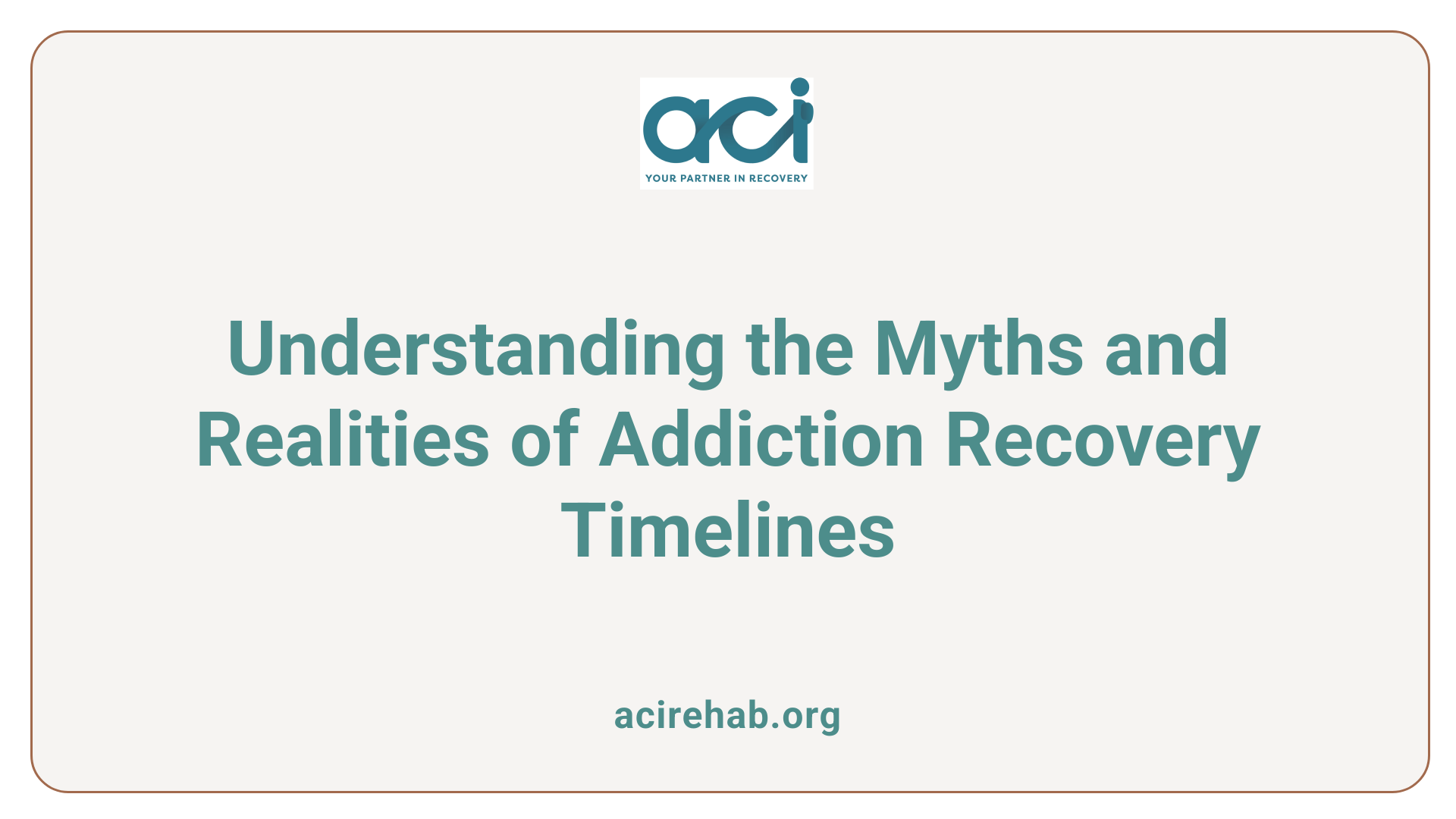
How long does it take to break a bad habit or addiction?
Breaking a bad habit or addiction can take a significant and varying amount of time, generally ranging from 18 to 254 days. The average time calculated for a new behavior to become automatic is about 66 days.
The once widely accepted notion that
it takes only 21 days to break a habit has proven to be misleading, often leading to frustration for those trying to change long-standing behaviors. This myth originates from a misinterpretation of Dr. Maxwell Maltz’s work, which focused on self-image changes rather than addiction.
Motivation plays a vital role in successfully breaking a habit. Individuals with strong personal reasons for change tend to achieve their goals more effectively. Importantly, the duration and personal complexities of the habit also impact the timeline. For instance, habits associated with significant emotional rewards or that have been ingrained for a long time are more challenging to overcome.
General timelines for breaking habits
In research, it has been noted that forming a new habit can require approximately 21 days of conscious effort, followed by a need to solidify it over an average of 66 days. However, breaking an addiction is much more intricate. Research indicates that at least 90 days of dedicated treatment and recovery effort are generally necessary to achieve substantial progress in overcoming addiction.
Factors like addiction type, the individual’s health history, and mental well-being further complicate these timelines. For example, withdrawal symptoms and cravings can extend well beyond the initial detox phase, affecting the overall recovery process.
Complexity of addiction
Addiction is not merely a habit but a chronic, relapsing condition that impacts the brain and often requires more structured intervention than habit-breaking strategies. Detoxification itself can last from 5 to 10 days, but it is just one part of an expansive recovery journey that often spans months or even years.
Understanding the complexity of addiction highlights that while some may experience substantial change after three months of treatment, others confront a longer road, influenced by personal circumstances such as social support, co-occurring mental health disorders, and the severity of the addiction itself. This individualized nature of recovery emphasizes the importance of ongoing support and commitment to sobriety.
Physical Withdrawal and the Detox Stage
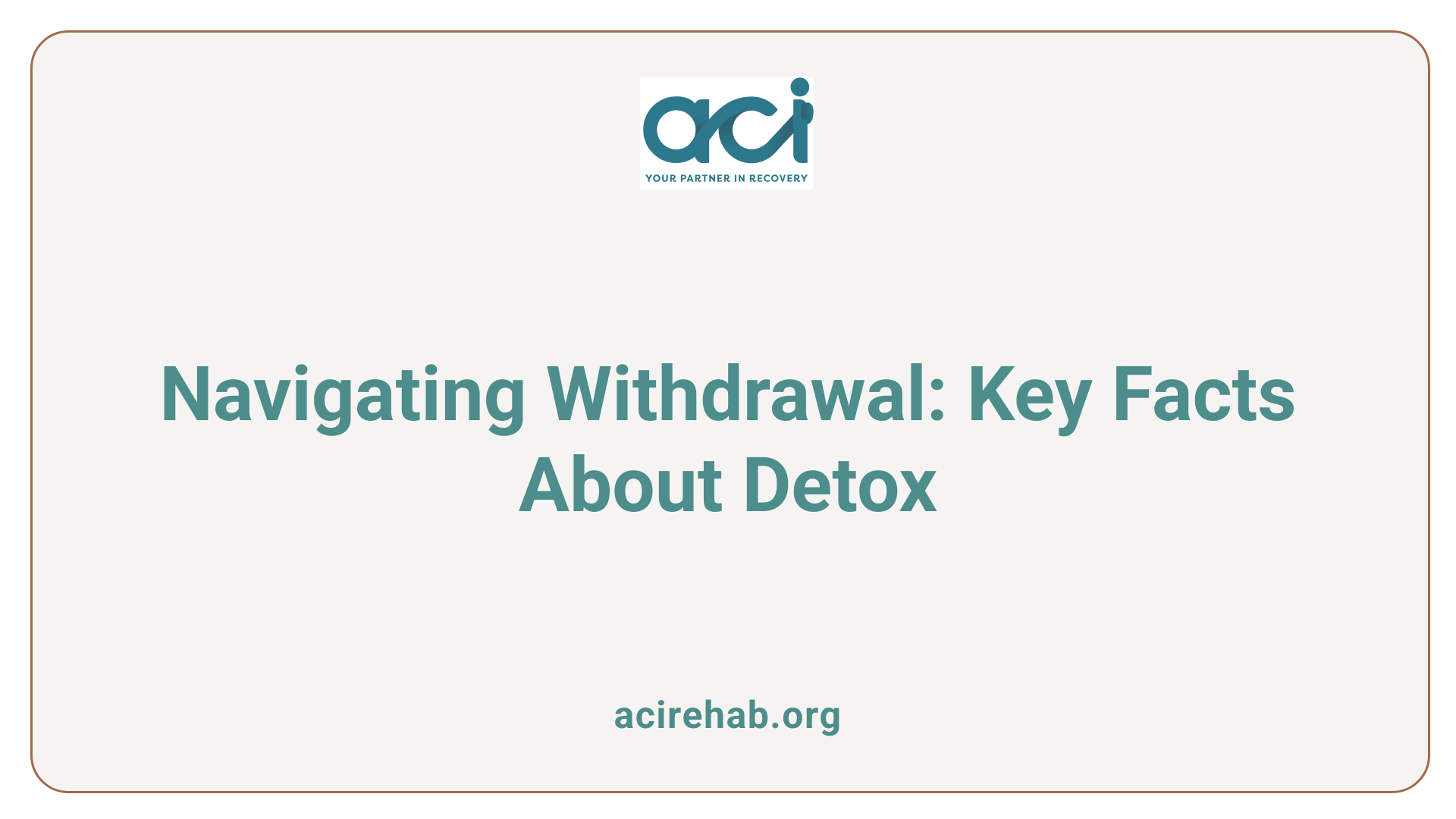
Withdrawal Timelines
The timeline for withdrawal varies significantly depending on the substance involved. For example, alcohol withdrawal symptoms typically begin within 8 hours after the last drink, while heroin withdrawal can kick in around 6 hours post-use. Cocaine withdrawal usually starts within 24 hours, and benzodiazepine withdrawal begins approximately 12 hours after the last dose.
Detox Process
Detoxification, or detox, is a critical first step in overcoming addiction. This stage generally lasts from 5 to 10 days but can vary based on the severity of the addiction and the specific substance. For instance, detox from opioids may take a week or more, while certain stimulants might require a shorter detox period while still needing extensive recovery afterward.
Substance-Specific Withdrawal Symptoms
Different substances yield unique withdrawal symptoms:
| Substance | Withdrawal Symptoms | Duration |
|---|---|---|
| Alcohol | Delirium tremens, anxiety, seizures | 3 to 14 days |
| Heroin | Nausea, vomiting, muscle pain | 5 to 10 days |
| Cocaine | Fatigue, depression, increased appetite | Up to 30 days |
| Opioids | Restlessness, insomnia, seizures | 1 week to 1 month |
| Benzodiazepines | Anxiety, insomnia, irritability | Several weeks |
Understanding these timelines and symptoms is essential for effective treatment and recovery.
Stages of Change in Addiction Recovery
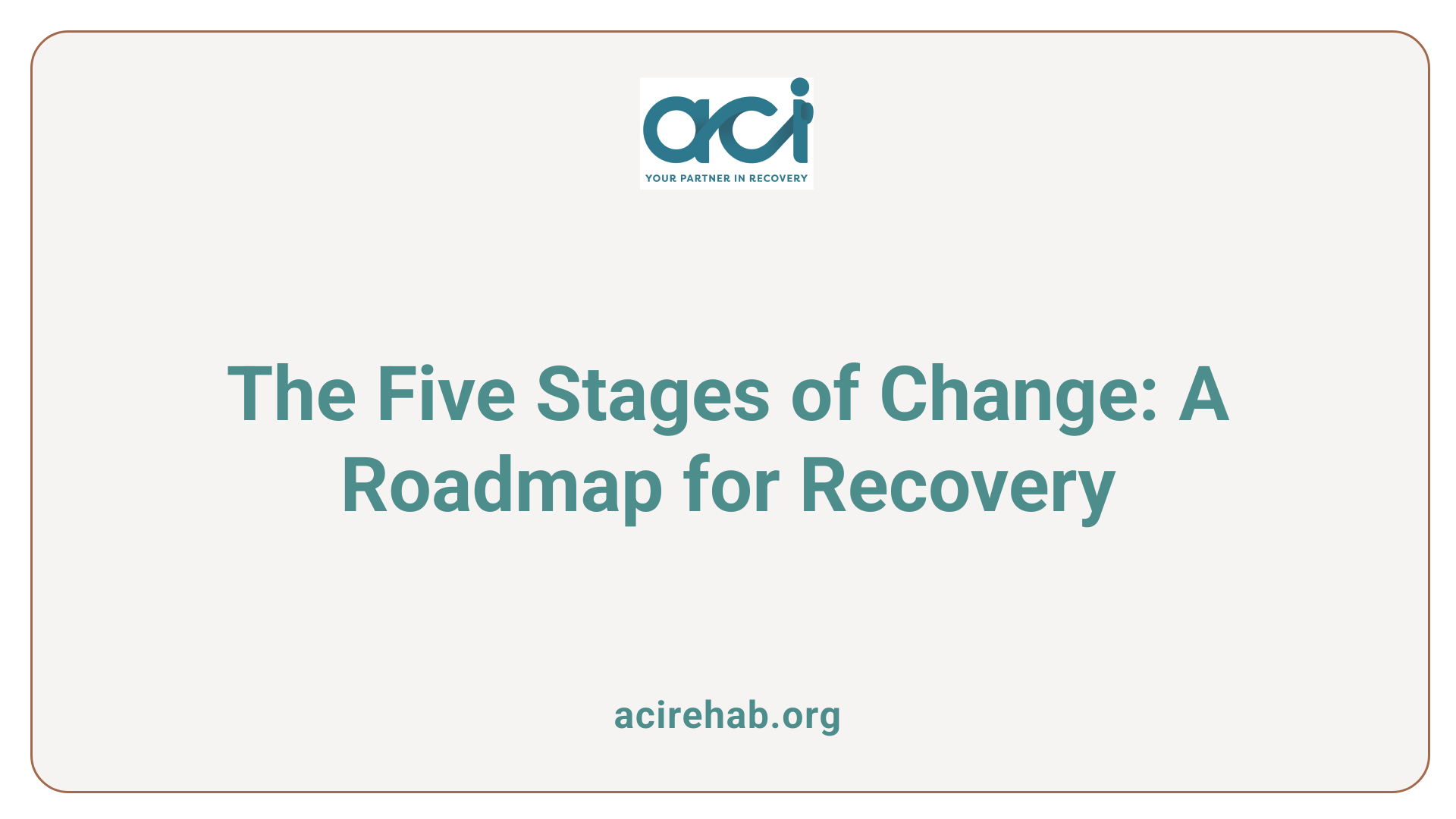
What are the five stages of change in addiction recovery?
The five stages of change in addiction recovery, known as the Transtheoretical Model, provide a framework for understanding how individuals progress through the recovery process. These stages are:
- Precontemplation: In this initial stage, individuals are often unaware of the negative impacts of their behavior. They may not recognize that their use of substances is problematic.
- Contemplation: Here, individuals begin to acknowledge the need for change. They start to reflect on the consequences of their addiction and contemplate the possibility of modifying their behavior.
- Preparation: During this stage, individuals actively plan for change. They may gather information on treatment options and develop strategies for addressing their addiction.
- Action: This is where individuals start to make significant changes to their habits. They engage in treatment programs, participate in counseling, or adopt new coping strategies to combat their addiction.
- Maintenance: In the final stage, the focus shifts to sustaining recovery. Individuals work on preventing relapse by utilizing support systems and continuing with healthy behaviors.
Application in addiction recovery
This model is particularly important in acute care settings, including for youth populations, as it emphasizes the need for personalized approaches to substance use. Understanding these stages allows treatment providers to develop tailored interventions that align with the individual’s readiness for change, fostering a more effective recovery process.
Understanding the stages of change can help guide individuals through the complexities of addiction recovery, recognizing that progress is often non-linear and requires ongoing support.
Complexities in Overcoming Different Types of Addictions
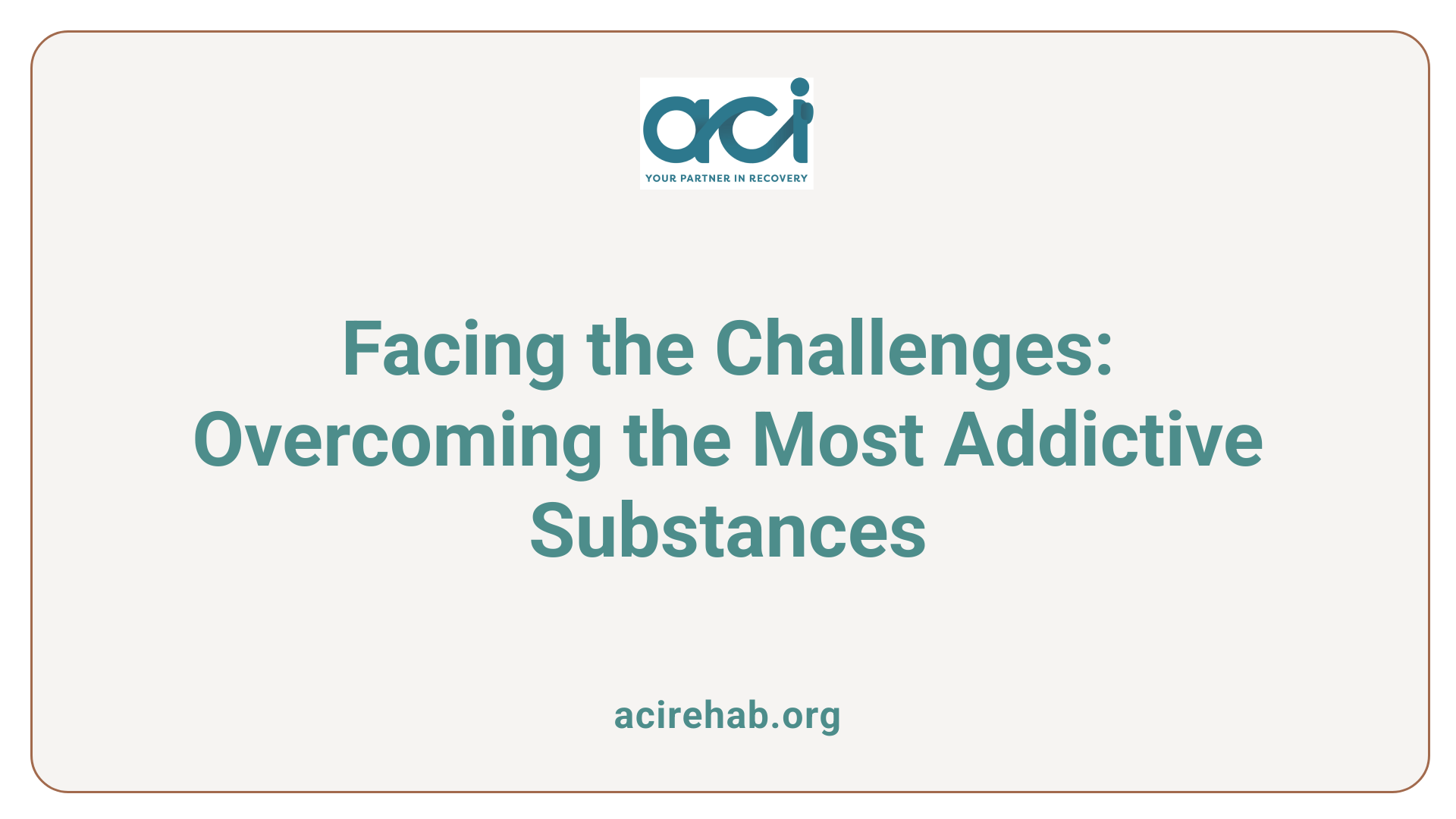
What is the hardest drug to quit?
The hardest drug to quit is often considered to be heroin, along with prescription painkillers. These substances are notorious for their high addictiveness and the severe withdrawal symptoms they inflict. Users experience intense cravings and a range of physical symptoms that make quitting exceedingly challenging.
Cocaine is also notoriously difficult to stop using due to its ability to cause intense psychological cravings, along with emotional disturbances like depression and anxiety during withdrawal. Its effects on the brain can lead to a cyclical pattern of use that is hard to break.
Methamphetamine, or crystal meth, leads to profound changes in brain chemistry. This results in significant physical and psychological dependence, making recovery a long and arduous process.
More surprisingly, benzodiazepines pose substantial challenges for quitting. Their withdrawal can require medical detox due to the potential for severe complications. Likewise, alcohol and nicotine addictions are deeply entrenched, with millions struggling to break free; for instance, over 17 million adults in the U.S. grapple with alcohol abuse, but only about 15% of smokers successfully quit despite numerous attempts.
Impact of different substances on recovery duration
The duration of recovery is significantly influenced by the type of addiction. Each substance features a unique withdrawal timeline and requires different approaches to treatment:
| Substance | Typical Detox Duration | Recovery Focus |
|---|---|---|
| Heroin | ~10 days | Psychological support and coping |
| Cocaine | ~30 days | Emotional health and stability |
| Methamphetamine | 30-90 days | Long-term brain recovery |
| Benzodiazepines | Variable | Gradual tapering under supervision |
| Alcohol | 7-14 days | Long-term counseling and support |
The choice of treatment program—whether inpatient or outpatient—also impacts recovery duration, often extending beyond initial detox.
Complications due to co-occurring conditions
Personal health history and co-occurring mental health conditions can complicate addiction treatment. Individuals dealing with anxiety, depression, or trauma may find their recovery timeline lengthened.
Effective treatment must incorporate strategies to address both addiction and mental health. Those lacking robust support networks often struggle more, as ongoing assistance significantly enhances the likelihood of achieving long-lasting recovery.
Understanding these complexities highlights that overcoming addiction is not a simple process influenced by generic timelines. Instead, the journey demands tailored approaches and sustained commitment.
Factors Influencing the Duration of Addiction Recovery
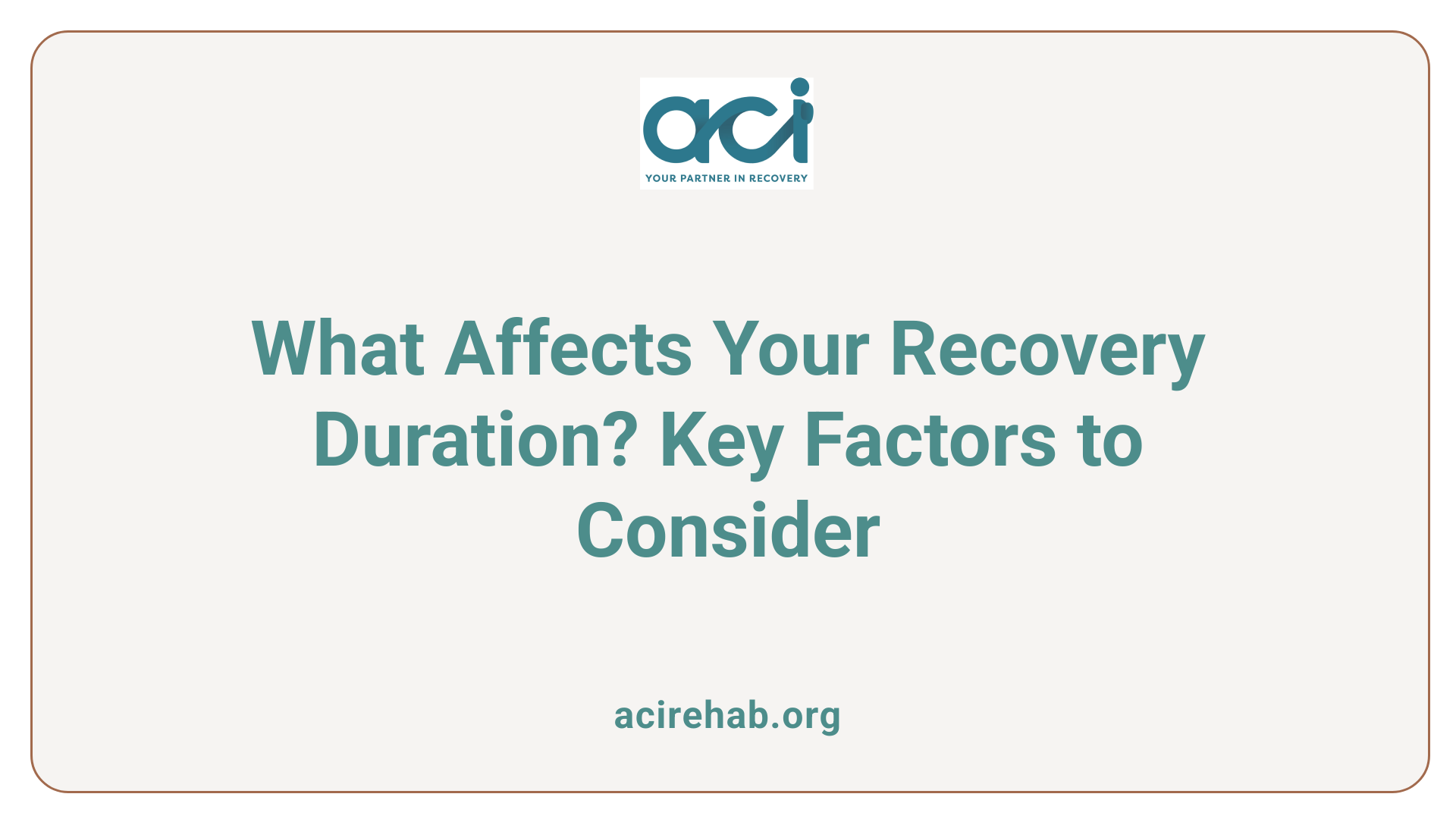
How long does it take to get rid of addiction, and what factors influence this duration?
Recovering from addiction varies considerably among individuals, with the process often taking anywhere from six months to several years. This lengthy recovery can be attributed to numerous influencing factors that shape each person’s experience.
Influence of personal history on recovery
An individual’s history with addiction plays a crucial role in determining how long recovery will take. Factors such as the substance abused, duration of use, and previous attempts at recovery all contribute to the complexity of the process. For instance, chronic users may require more extended treatment compared to those with a shorter history of substance use.
Role of mental health and support systems
Mental health conditions often co-occur with addiction, further complicating recovery. Treating underlying psychological issues is essential for long-term success. Additionally, support systems, whether through family, friends, or professional networks, significantly enhance recovery outcomes. Engaging in 12-step programs or group therapy can provide a sense of community and accountability that positively influences the recovery journey.
Variation in recovery timelines
Recovery timelines can differ widely based on each individual’s circumstances. Most people need at least 90 days in treatment to experience significant progress, as recommended by the National Institute on Drug Abuse (NIDA). However, some may find it beneficial to continue with outpatient programs or other supportive services well beyond this initial period.
In summary, breaking free from addiction is not just about stopping substance use; it involves a personalized approach, acknowledging emotional and psychological triggers, and committing to long-term strategies that support sustained sobriety.
The Lifelong Journey of Recovery
Importance of Long-Term Treatment and Support
Recovery from addiction is not a quick fix; it requires sustained effort over an extended period. Research shows that most people need at least 90 days in a treatment program to see significant improvements. Many individuals continue with outpatient programs or support groups like 12-step meetings well after the initial treatment phase, emphasizing that recovery is an ongoing journey.
Relapse Prevention Strategies
Relapse is a common hurdle in the recovery process. It’s essential to develop a personalized plan that includes coping strategies for triggers and stressors. Engaging in therapeutic practices, staying connected with support networks, and attending regular counseling sessions can greatly enhance long-term sobriety.
Ongoing Personal Effort
The work doesn’t stop after drug treatment. Individuals must actively participate in their recovery, which may involve lifestyle changes, cultivating healthy relationships, and managing co-occurring mental health conditions. Building a strong foundation for recovery ensures that individuals can navigate challenges and maintain sobriety throughout their lives.
Conclusion
Breaking an addiction is a deeply personal and complex journey that extends far beyond the simple breaking of a habit. It necessitates a comprehensive approach that considers withdrawal symptoms, stages of change, and the influence of individual factors. Understanding that recovery is not a one-size-fits-all process empowers individuals and their support networks to embrace a lifelong commitment to sobriety, bolstered by appropriate treatment, unwavering support, and adaptive coping strategies.
References
- How Long Will it Take to Break an Addiction? | Silver Mist Recovery
- How Long Does it Take to Break the Habit of Addiction?
- How Long Does It Take to Break an Addiction?
- How Long Does It Take to Break an Addiction? – Recovery.com
- How Many Days Does it Take to Break an Addiction?
- How Many Days To Break An Addiction? – Zinnia Health
- How Long Does It Take To Break An Addiction? – MPower Wellness

